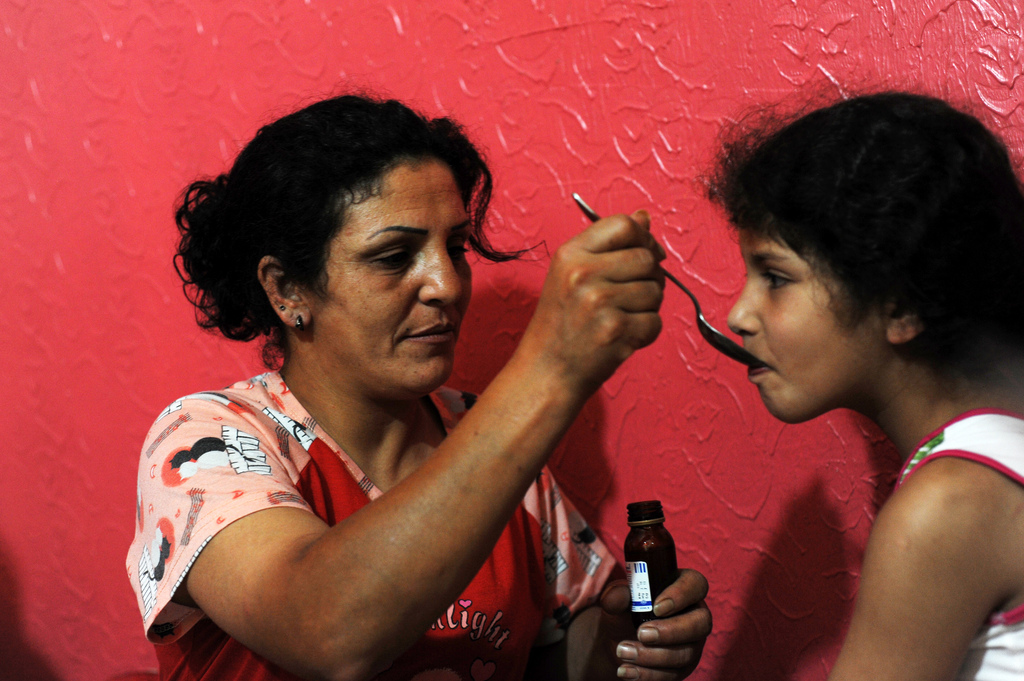US President Donald Trump’s withholding of $65 million in contributions to the United Nations Relief and Works Agency for Palestine Refugees (UNRWA) earned considerable attention. It has also reinforced the stereotypes that have contributed to the distortion of the Palestinian narrative.
As the international community expanded its criticism and concerns about the humanitarian crises affecting Palestinian refugees, it also neglected the recent dynamics which resulted in the collaborative US-Israeli targeting of a colonised and displaced population.
it is important to contextualise the decision to withdraw funding within the Israeli, US and international perspectives on Palestine.
In 2017, Israel increased its anti-UNRWA rhetoric, calling upon the international community to close down the agency through a specific targeting of Palestinians’ refugee status. Deputy Foreign Minister Tzipi Hotovely stated that the UN is “creating a myth that the Palestinians are supposed to be refugees when they’re actually not.” Funding UNRWA, according to Hotovely, contributes to “creating more and more refugees.” Israeli Prime Minister Benjamin Netanyahu periodically called for the dismantling of UNRWA, revealing, last January, the main and unfounded contention which Israel has with the organisation: “It also perpetuates the narrative of the so-called ‘right of return’ with the aim of eliminating the State of Israel, and therefore UNRWA must disappear.” UNRWA merely references UN General Assembly Resolution 194 as a context for its humanitarian operations with Palestinian refugees.
Trump has pursued a policy that reflects previous presidencies and their support for Israel, but which is more overt. Since the US’ unilateral recognition of Jerusalem as Israel’s capital, which aids Israel’s annexation plans, the Trump administration has elevated Israel’s demands by demanding of Palestinians to subjugate themselves to additional impositions. In an attempt to consolidate the decision to withhold funding from UNRWA, the US also insisted that Palestinians eliminate references to the right of return and their legitimate claims to Jerusalem.
Here lies the greatest deficiency of the international community. Whereas it is clear that Israel and the US are pursuing a destructive agenda against Palestinian refugees by demanding that they relinquish their rights, the international community has chosen to eliminate the political context from the humanitarian situation. There is no assertion from the international community, for example, that withholding funds is a political act against Palestinians perpetrated through UNRWA.
UNRWA defines itself as a humanitarian organisation working “in the absence of a solution to the Palestine refugee problem”. In its press communications and briefings, the emphasis is upon the organisation’s practical and immediate responsibilities. The recent statement by Commissioner General Pierre Krähenbühl is one such example of discourse which discusses the humanitarian plight without the political context. It reflects much of the international community’s discussion on Palestinians refugees which eliminates Israel’s role in creating the conditions requiring UNRWA’s existence. The gap in the narrative is filled by detailed reports about deprivation and the need for aid. Just as Israel displaced Palestinians from their territory and homes, the international community is displacing Palestinian political demands and replacing them with dependency by closing all political avenues that do not fall within the category of negotiations.
It is important, therefore, to refrain from consolidating the Israeli colonial narrative by only focusing upon the funding of UNRWA. While the organisation is performing duties which would otherwise be neglected, the organisation does not propagate Palestinian political rights. It clearly defines its provision for Palestinian refugees as “pending the just resolution”.
The quoted phrase reflects the permanence of Palestinian refugees which, in turn, requires the permanence of UNRWA. It reflects the collective intent of the international community to refrain from pursuing a political solution to avoid antagonising and destabilising Israel. Contrary to what Netanyahu states, UNRWA does not pose a challenge to Israel, given that it has limited autonomous function due to its dependence upon financial contributions. If given a political platform, Israel would face a challenge from Palestinian refugees. The colonial narrative and Israel’s impunity in creating a displaced population would face serious repercussions.
Netanyahu’s tactic, aided by the US, is to eliminate the Palestinian political identity in a way that mirrors the Palestinians’ deteriorating humanitarian conditions. If Palestinians are constrained by their environment and lack of access to basic needs, survival is prioritised. As Palestinians protest the cuts in funding and services which recently led to UNRWA’s dismissal of 158 teachers, less attention will be given to Israel’s colonial expansion and the perpetual creation of refugees. The narrative is altered to one of needs, rather than rights, since the focus is on the outcome, rather than the process of violating international law.
As a result of increasingly overt US support for Israel, the conditions now allow for expanding coercion upon institutions which have a direct impact upon Palestinians. This means that the political power rests solely with the perpetrators, while Palestinians are left to navigate the inadequate humanitarian channel without any political protection.
Photo: Cluster Munition Coalition/Creative Commons

